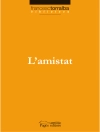This book provides a perspective on the concepts placebo and placebo effects, which has been missing so far: a detailed analysis of the history of the terms, their current use, suggested alternatives and the implications of the conceptual confusion. Everybody knows something about placebos and placebo effects. If, however, people are asked to define the concepts, the spectrum becomes wide. Does ‘placebo’ refer to an inert treatment or does it cover all elements of the patient-physician-interaction except for pharmacological or other physiological mechanisms? Furthermore, if, by definition, a placebo has no effect, what sense does it make to talk about a ‘placebo effect’? Even in scientific literature the concepts ‘placebo’ and ‘placebo effect’ are used in many senses and often in a confusing way. While this book discusses many issues which keep puzzling physicians, it also covers the historical developments of the concepts of placebo and placebo effect as wellas the conceptual confusion in the definitions. This book is intended for physicians, philosophers, psychologists and any other people interested in placebos, placebo effects and the physician-patient relationship.
Daftar Isi
1 Introduction.- 2 History of the concepts.- 2.1. Placebo.- 2.2 Placebo effect.- 3 Placebo concept today.- 4 Placebo effects.- 4.1 Short overview on the physiological mechanisms.- 4.2 Short overview on the psychological mechanisms.- 4.3. Beyond pain: placebo effects everywhere.- 4.4. Ethical issues in research on placebo effects.- 5. New terminology – suggestions and problems.- 6 Clinical use of placebos.- 6.1. Empirical research on th e use of placebos.- 6.2. Conceptual confusion.- 6.3. What do we really know?.- 7. Conclusions.
Tentang Penulis
Pekka Louhiala is a lecturer in medical ethics at the University of Helsinki, Finland. He has degrees in both medicine and philosophy, and he also works as a part-time paediatrician in private practice. He has published on various topics in medical ethics, philosophy of medicine and epidemiology. His current academic interests include conceptual and philosophical issues in medicine, such as evidence-based medicine and placebo effects.












